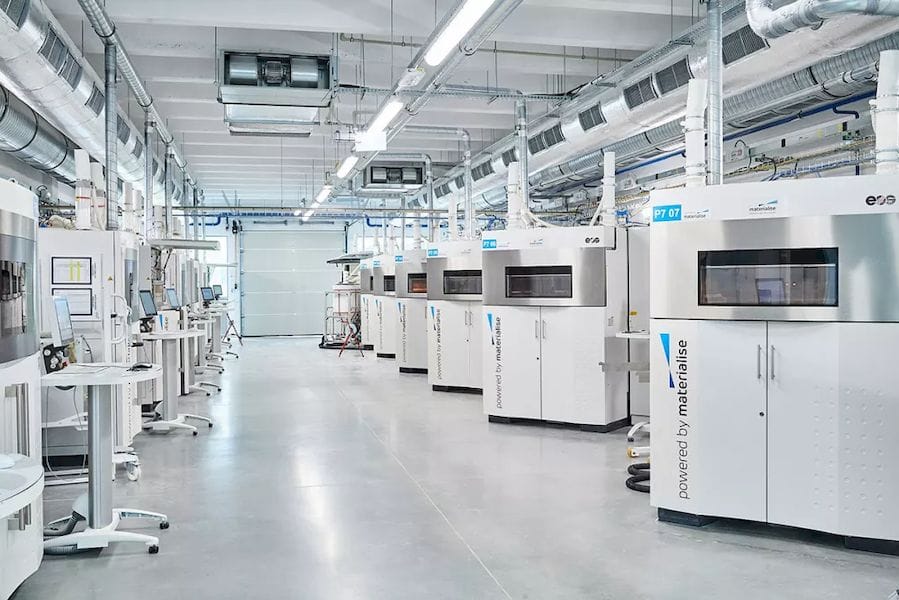![Powder Bed Fusion machines located at Materialise’s 3D printing facilities. [Source: Materialise]](https://fabbaloo.com/wp-content/uploads/2020/05/basfandmaterialiseov_result_img_5eb0a98c9f8a7.jpg)
Numerous large chemical companies have been increasing their stake in 3D printing materials manufacturing, but BASF is the largest chemical producer in the space.
The German chemical giant has continued to throw its weight around, most recently investing a massive $25 million in Materialise, the nearly 30-year-old Belgian 3D printing software developer and service provider.
To learn about the deal, we spoke to Bryan Crutchfield, vice president and general manager of Materialise North America.
Crutchfield explained that Materialise has been working with BASF for some time, but that the partnership really deepened at the 2017 Materialise World Summit in Brussels and, later, at the 2018 Materialise Experience event in North America.
“We established this strategic reliance, in which we’re going to work on a common goal of bringing materials and software and applications to the market to make meaningful changes inside of the industry—to drive it forward in various vertical industries, such as automotive, aerospace and consumer,” Crutchfield said.
Materialise sees a “strategic alliance” between the two companies as one that builds upon their mutual interest in approaching the 3D printing market in an “open and neutral” way, according to Crutchfield. With such an approach, the partners are hoping to increase widespread adoption of the technology, which will see each company bring its strengths to the alliance.
On the BASF side, this means extensive knowledge of material development and what manufacturers need from their materials.
Additionally, the chemical giant is connected to a wide variety of very large manufacturers, and has the potential to give Materialise access to those clients, which would not only provide the company with a larger customer base but also a better understanding of the workflows necessary for large-scale manufacturers.
For its part, Materialise has been in existence for 28 years, developing software and providing industrial 3D printing services, including the production of parts certified for aerospace and medical applications.
Thus, the company has significant knowledge of producing parts with 3D printing, as well as how additive manufacturing (AM) systems operate, particularly since Materialise develops its Build Processor software, which works with a number of large AM machine manufacturers.
As the largest AM service bureau in Europe, Materialise manufactures over a million parts per year. “That provides us with an interesting footprint from a BASF point of view because we see a wide variety of applications through that service bureau and 190 machines,” Crutchfield said. “That helps us understand how parts can be built, their orientations, material properties and the appropriate [AM] technologies that might be applicable to best achieve the desired end use.”
It was in July when Materialise announced a new release for shares that BASF expressed the desire to buy an interest in the company with a $25 million investment. Materialise since went to market with its stock offering at $13 per share.
Read more at ENGINEERING.com

